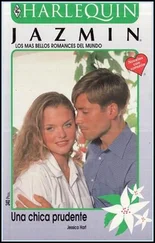“Wait, before you tell me, I just have to say, thank you so much for hanging out tonight,” Jen said. “Especially on a school night. Millie won’t wander into traffic or anything?” Millie, Jen’s goddaughter, was Meg’s uncannily considerate and beatific two-year-old. Even Millie’s tantrums had a tidy, meditative quality.
“She’s good. Marc and I have her tethered in the back garden,” Meg said. “The neighbors toss meat over the fence if she cries.”
“And how’s Marc?”
“Ask him yourself,” said Meg, gesturing toward a disheveled man in a dun trenchcoat with his head on the bar. Meg’s actual Marc was at home, where, since losing his finance job, he pursued various woodworking-related hobbies involving custom picture frames for Millie’s finger paintings and carved mallard ducks. His trust fund (private equity) dwarfed Meg’s own sizeable one (boiler equipment, mostly, but also television production royalties). Jen had always tried to displace her envy of their bottomless security by reflecting it back on herself as an intriguing hypothetical — how her idea of labor would change if it could be alienated from capital. If ambition were the only means of appraisal.
“Okay, so Bluff Senior, Charles Bluff, Big Cheese Bluff, recently completed an amicable divorce,” Meg explained, “and one of the many consolation prizes for the Mrs. Bluff is that she’s starting her own foundation. She’s even borrowing a couple of our people to get started. It’s unclear, but it sounds like she might be into the sensational, big-headline items in women’s-rights philanthropy — sex trafficking, FGM, and also stuff like ‘women’s empowerment,’ micro-enterprise, self-esteem…” Meg trailed off.
“Sounds promising!” Jen said.
“It’s…diffuse, at best. They’re looking for a communications person. Best-case scenario, you get a blank slate and fill it in however you want. Worst-case scenario, it’s a silly stopgap until the dark times are over. Either way, though, would it be weird to be employed by a divorce settlement?”
“What’s actually weird is that I think last month Jim and I spent more money on cat food than people food,” Jen said, swallowing. She had once again broken a rule she’d tried to set for conversations with Meg: that talking about something being expensive was sometimes okay, but talking about money —actual units of currency unto themselves, as opposed to how many units of those currency might be required to make a particular purchase — was not okay.
“Well, let me get you hooked up with the hiring people,” Meg said. “And send me your résumé again — you changed the font on it, right?”
“Yes,” Jen said. Meg felt that the loops on the g ’s and q ’s on a previous iteration of Jen’s résumé were too large, connoting flightiness, and that the spacing between characters was too ample, connoting standoffishness.
“And wait a second,” Meg said. “You know who the Mrs. Bluff is, right?”
“Um,” Jen said. “She’s on TV?”
Leora Infinitas, aka the Mrs. Bluff, the founder of LIFt, was born Leeza Infanzia in Jacksonville, Florida, in 1960, on the same day John F. Kennedy was elected president of the United States. As Ruby Stevens-Meisel — pseudonymous sole proprietor of the gossip and philosophy website DOPENHAUER and her generation’s leading Infinitas scholar — wrote in her magnum opus, “Leora Infinitas Is the Fulcrum of the Universe,” “The fates chose an auspicious day to launch a life that would know both triumph and tragedy. One of the first tragedies — and first opportunities for triumph — was one of nomenclature. Leeza Infanzia was a name both bombastic and belittling— Leeza a bastardized diminutive, and when paired with Infanzia taking on the bathos of a Raphael Madonna-and-child rendered as a refrigerator magnet.”
“I was chubby. I wasn’t cute,” Leora Infinitas once said of her childhood self. “I wasn’t an easy child to love, visually.”
Barely out of her teens, Leeza Infanzia moved to Los Angeles, signing up for acting and dance auditions under her new name, Leora Infinitas. “Her name, its meaning, was now a speech act: I am infinite light, ” Stevens-Meisel wrote. “She is beacon and power source; she is an illuminated manuscript. And yet this new text knowingly slant-rhymed with Leeza Infanzia —not leaving Leeza in the dark but rather shining a light through the palimpsest that is Leora Infinitas, paying tribute to the young woman who was not (yet) a mother, who first had to give (re)birth to herself.”
Leora Infinitas got bit roles in procedural television dramas and could be spotted, for three and a half seconds, two dancers behind Lionel Richie in the “All Night Long” video. Her breakthrough role arrived at the end of the 1980s: Trudy Wheeler née Gunderson, the brassy, no-nonsense wife to a nutty inventor and mother to his two sons on the sitcom Father of Invention née Inventing the Wheelers . Trudy spent the next eight years tripping over circuit boards powering cold-fusion experiments conducted on vintage Blue Comet train sets and pratfalling over domino structures that climaxed in the fusion of copper wire and silver nitrate. And each time Trudy found a fleet of white lab mice using her pantry as a buffet spread or that the boys had swapped her shampoo for disappearing ink, at the moment of recognition, she would deliver her catchphrase: “I am out; I am dunzo.”
The genius of Leora Infinitas — or the part of her genius that helped make her a muse for drag performers, but only once Father of Invention had moldered in syndication for years, “only once the wine of Leora had aged,” Stevens-Meisel wrote, “only once the complex chemical equation of Leora had intensified its flavor compounds”—was in her ability to find variation upon variation in those mere seven syllables. “I am out; I am dunzo” could deliver rat-tat-tat staccato frustration. “I am out; I am dunzo” could sound a howl of despair. “I am out; I am dunzo” could be a sigh of exhaustion, or a bleat of coquettish bemusement, or a fond surrender to the ineffable lovability of her three charges, no matter how many times they exploded her oven.
Celebrity-magazine editors and talk-show bookers relished the visual contrast between Trudy-Leora (patterned sweatshirts, high-waisted jeans) and Leora-Leora, who wore lots of red: red lips, red stilettos, diaphanous bias-cut red silk, a biker jacket in artery blast. Over time, the contrast faded. In later seasons of Father of Invention, the viewer may have paused over why Trudy would need five-inch stilettos and a blowout to clean the always-exploding oven. By then Leora had married Brent Simons, the twenty-five-years-older creator of the show and its equally lucrative spinoff Son of a Gunderson, and Leora had borne his two youngest children on a schedule that mapped onto Father of Invention ’s summer hiatus. “In all things,” Stevens-Meisel wrote, “Leora had a sense of timing — or like light itself, she transcended time.”
Leora Infinitas, sitcom star, won wacky supporting parts in ensemble comedy films, voice-over roles in video games, her own jewelry and makeup lines. Her divorce from Simons was amicable, save for one spectacular conflagration over a koi pond surrounded by faux-Bernini figures depicting moments of sexual enslavement in Roman mythology, a conflict simultaneously so melodramatic, so inane, and so at odds with its otherwise affable context that Ruby Stevens-Meisel hypothesized that the whole episode was a bit of publicity-enhancing theater ahead of the premiere of her new reality show, Leora’s World, a hypnotic chronicle of her flinty encounters with her staff and/or friends, with her sulky pair of preteen daughters, and with her would-be colleagues in her nascent quest to become a “philanthropy innovator.”
Читать дальше












